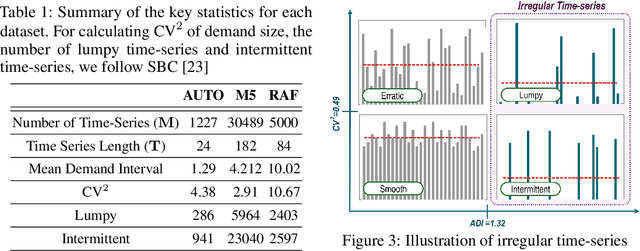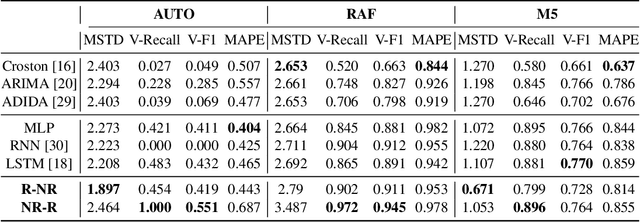An Adversarial Learning Approach to Irregular Time-Series Forecasting
Paper and Code
Nov 28, 2024



Forecasting irregular time series presents significant challenges due to two key issues: the vulnerability of models to mean regression, driven by the noisy and complex nature of the data, and the limitations of traditional error-based evaluation metrics, which fail to capture meaningful patterns and penalize unrealistic forecasts. These problems result in forecasts that often misalign with human intuition. To tackle these challenges, we propose an adversarial learning framework with a deep analysis of adversarial components. Specifically, we emphasize the importance of balancing the modeling of global distribution (overall patterns) and transition dynamics (localized temporal changes) to better capture the nuances of irregular time series. Overall, this research provides practical insights for improving models and evaluation metrics, and pioneers the application of adversarial learning in the domian of irregular time-series forecasting.
 Add to Chrome
Add to Chrome Add to Firefox
Add to Firefox Add to Edge
Add to Edge